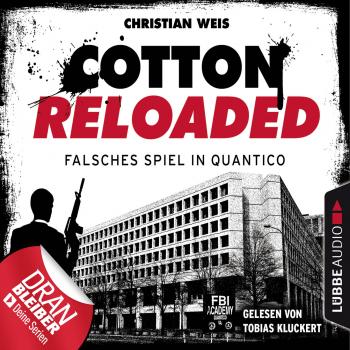Автор
Все книги издательства АвторThe Collected Works of Frederick Jackson Turner
This comprehensive eBook presents the complete works or all the significant works – the Œuvre – of this famous and brilliant writer in one ebook – easy-to-read and easy-to-navigate: • The Frontier in American History by Frederick Jackson Turner • Rise of the New West, by Frederick Jackson Turner • The Character and Influence of the Indian Trade in Wisconsin by Frederick Jackson Turner
The Collected Works of Edwin A. Abbott
This comprehensive eBook presents the complete works or all the significant works – the Œuvre – of this famous and brilliant writer in one ebook – easy-to-read and easy-to-navigate: • Flatland: A Romance of Many Dimensions by Edwin Abbott Abbott • Flatland: A Romance of Many Dimensions by Edwin Abbott Abbott • How to Write Clearly by Edwin Abbott Abbott • FlatlandEdwin by Abbott Abbott
One Who Moved Out to Get Rich
ALL CHINESE EAT DOGS AND CATS! Franz Übermut, is a German businessman who wants to gain a foothold in China for business and pleasure, humorously dispels mistakes about China. The land is brought closer to the Europeans and the Western world in a way that no travel guide can. Every day in their life with his wife Hong and her family comes up with exciting stories, and one or the other pitfalls cannot be avoided despite all warnings. The marriage of the two is far from harmonious, because different cultures clash again and again. For both of them this is no reason to give up, they love each other. Their life is filled with actions, thoughts and conversations about money, happiness, intrigue, love, power, sex, and business.
Lindsay-Marsch
The german film music composer is responsible for the music of several film classics such as «Der Pauker» (1958), «Rosen für den Staatsanwalt» (1959), «Mein Schulfreund» (1960), «Das Testament des Dr. Mabuse» (1962). He also composed the soundtrack for the Karl-May film «Durchs Wilde Kurdistan». The sheet music for the track «Lindsay-Marsch» is available here for piano.
Journal of Romanian Studies
The new biannual, peer-reviewed Journal of Romanian Studies, jointly developed by The Society for Romanian Studies and ibidem Press, examines critical issues in Romanian studies, linking work in that field to wider theoretical debates and issues of current relevance, and serving as a forum for junior and senior scholars. The journal also presents articles that connect Romania and Moldova comparatively with other states and their ethnic majorities and minorities, and with other groups by investigating the challenges of migration and globalization and the impact of the European Union.
Issue No. 2 contains:
Lucian Leuștean: Romania, the Paris Peace Conference and the Protection System of “Race, Language and Religion” Minorities: A Reassessment
Gavin Bowd: Between France and Romania, Between Science and Propaganda. Emmanuel de Martonne in 1919
Doina Anca Cretu: Humanitarian Aid in the “Bulwark of Bolshevism:” The American Relief Administration and the Quest for Sovereignty in Post-World War I Romania
Gábor Egry: Made in Paris? Contested Regions and Political Regionalism during and after Peacemaking: Székelyföld and the Banat in a Comparative Perspective
Svetlana Suveica: Against the „Imposition of the Foreign Yoke“: The Bessarabians Write to Wilson (1919)
Florian Kührer-Wielach: “A fertile and flourishing garden”: Alexandru Vaida-Voevod's Political Account Ten Years after Versailles
Ukraine's Maidan, Russia's War
In early 2014, sparked by an assault by their government on peaceful students, Ukrainians rose up against a deeply corrupt, Moscow-backed regime. Initially demonstrating under the banner of EU integration, the Maidan protesters proclaimed their right to a dignified existence; they learned to organize, to act collectively, to become a civil society. Most prominently, they established a new Ukrainian identity: territorial, inclusive, and present-focused with powerful mobilizing symbols.
Driven by an urban “bourgeoisie” that rejected the hierarchies of industrial society in favor of a post-modern heterarchy, a previously passive post-Soviet country experienced a profound social revolution that generated new senses: “Dignity” and “fairness” became rallying cries for millions. Europe as the symbolic target of political aspiration gradually faded, but the impact (including on Europe) of Ukraine’s revolution remained. When Russia invaded—illegally annexing Crimea and then feeding continuous military conflict in the Donbas—, Ukrainians responded with a massive volunteer effort and touching patriotism. In the process, they transformed their country, the region, and indeed the world.
This book provides a chronicle of Ukraine’s Maidan and Russia’s ongoing war, and puts forth an analysis of the Revolution of Dignity from the perspective of a participant observer.
Intellectual Property is Common Property
Defenders of intellectual property rights argue that these rights are justified because creators and inventors deserve compensation for their labour, because their ideas and expressions are their personal property and because the total amount of creative work and innovation increases when inventors and creators have a prospect of generating high income through the exploitation of their monopoly rights. Andreas Von Gunten shows in this essay that the classical arguments for the justification of private intellectual property rights can be contested, and that there are many good reasons to abolish intellectual property rights completely in favour of an intellectual commons where every person is allowed to use every cultural expression and invention in whatever way he wishes.









